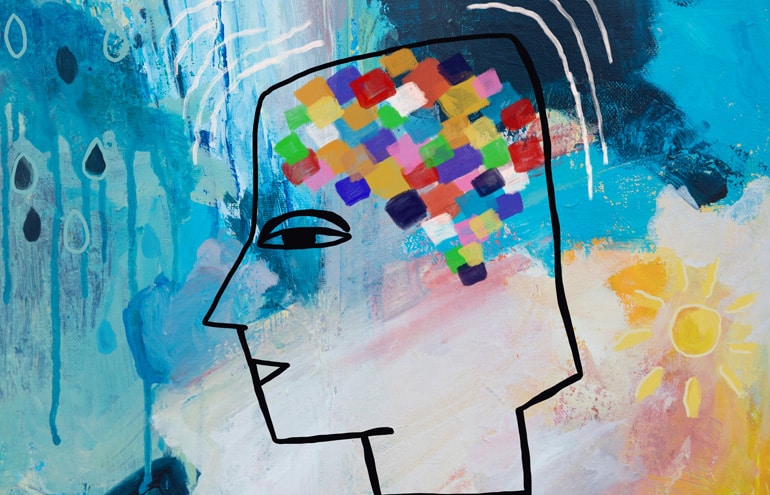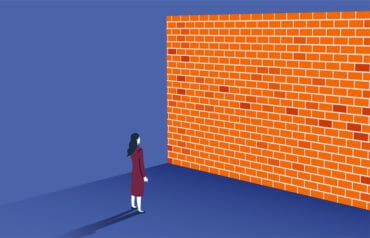In the post “The Warrior vs. The Guru” we learned how important it is to balance your warrior and guru brain. Try these techniques to reboot your brain and practice law from a calmer and easier place.

Table of contents
Practicing law can be exhilarating or threatening — depending on how you look at it. Millions of years ago, our reptile brains looked far different than they do today. Hardly more than a cluster of cells with impulses and motor control, our brains didn’t have the ability to think. They only reacted to threats in the environment. This was the beginning of our autonomic nervous system.
In my last post, “The Warrior vs. The Guru,” we discussed how our brains work via signals from our five senses, our skin and other parts of our bodies that are routed through our autonomic nervous system, then through our limbic brain to our frontal cortex. It can be as much as several seconds between our physical perception and our thought process. Fortunately, our autonomic nervous system works much faster and can react almost instantly to threats. That is why, especially in warrior mode, we are able to “act without thinking.”
The Trouble With Overactive Warrior Brain
Without awareness and training, the autonomic nervous system will react to threats, whether they are life-threatening or simply unexpected. The sympathetic nervous system will “click on” whenever it perceives a threat or simply because it is accustomed to activating. If we continuously activate our warrior by thinking and rethinking about threats or negative events, it becomes normalized — we get used to it.
Unfortunately, once you are used to it, it feels uncomfortable when the threat is over and your sympathetic nervous system clicks off. Then, you may subconsciously create reasons to reactivate the system.
In other words, we subconsciously create chaos to activate our sympathetic nervous system.
Here are some symptoms of an overactive warrior in your psyche:
- Anger
- Anxiety
- Insomnia
- Muscle pain and stiffness
- High blood pressure
- Weight gain
- Depression
- Compromised immune system
It is no coincidence that many lawyers complain of these symptoms. Stress, anxiety, depression and related physical ailments are part of the landscape; they are something we expect in the practice of law. The problem is that other defense mechanisms in your brain can eventually shut down, and you burn out. It is like a circuit breaker that switches off to prevent our brain from self-destructing. I have experienced this phenomenon personally: I had a nervous breakdown in 2004.
Techniques Shutting Down the Warrior Brain
Fortunately, you can use techniques to turn off the warrior and activate the guru. Ironically, you can’t turn off the sympathetic nervous system by thinking. In fact, you must stop thinking and let your brain reboot. Research by Dr. Stephen Porges and other neuroscientists has shown that activating the vagus nerve turns off the warrior brain and activates the parasympathetic nervous system, the guru.
Here are five ways to quickly and easily turn off the warrior.
1. Smile
When you smile, you move facial muscles in a way that activates the facial nerves connected to the C7 cranial nerve, which attaches to the vagus nerve. Activating these facial nerves, in turn, activates the vagus nerve — and you feel more relaxed. That is why it feels so good to smile.
2. Turn on the Cold Water
Splashing cold water on your face or taking a cold shower does wonders to reboot your mind. When anxious, tense, stressed or depressed, put cold water, a cold washcloth or a cold towel on your face and head. You will feel better instantly.
3. Hum and Sing
There is a reason why singing in the shower makes you feel so good. It’s the same reason why when monks chant “OM,” it calms them down and clears their heads. The vocal cords are situated near the vagus nerve and activating the vocal cords can activate it, creating a feeling of relaxation and calmness. This is why singing and humming can be so satisfying.
4. Practice Hakalau
Hakalau is a Hawaiian term that refers to “expanded vision.” It is a technique developed by Huna healers in Hawaii to refocus the mind and create an “open-mindedness” to allow the brain to create new neural pathways. It involves using peripheral vision to create new thought patterns. Hakalau is extremely simple to achieve. Sit with your spine upright and looking straight ahead. Raise your hands with palms facing forward above your head. As you continue to look straight ahead, wiggle your fingers and separate your hands until they are at the edge of your peripheral vision. Then, raise and lower your hands along the edge of your peripheral vision as you wiggle your fingers. You will notice an almost instant change in your mood and stress level. Move your hands along the edge of your peripheral vision until you are free from anxiety and stress.
5. Exercise Your Eye Movement
When we move our eyes from the extreme left to the extreme right, we activate nerves connected to the C7 cranial nerve (see Smile above). Keeping the head upright and still, look as far to the left as possible for 60 seconds, then to the right for 60 seconds. When done correctly, you will yawn, signaling the guru is activated.
Life With the Guru Is Relaxing and Pleasant
There are other ways to activate the vagus nerve, but these are the simplest and quickest ways to get results of relaxation and well-being. Try doing these throughout the day, but at least whenever you feel the symptoms of the warrior coming on. This way, you can feel relaxed and enjoy law practice again.
Image © iStockPhoto.com.

Sign up for Attorney at Work’s daily practice tips newsletter here and subscribe to our podcast, Attorney at Work Today.
















